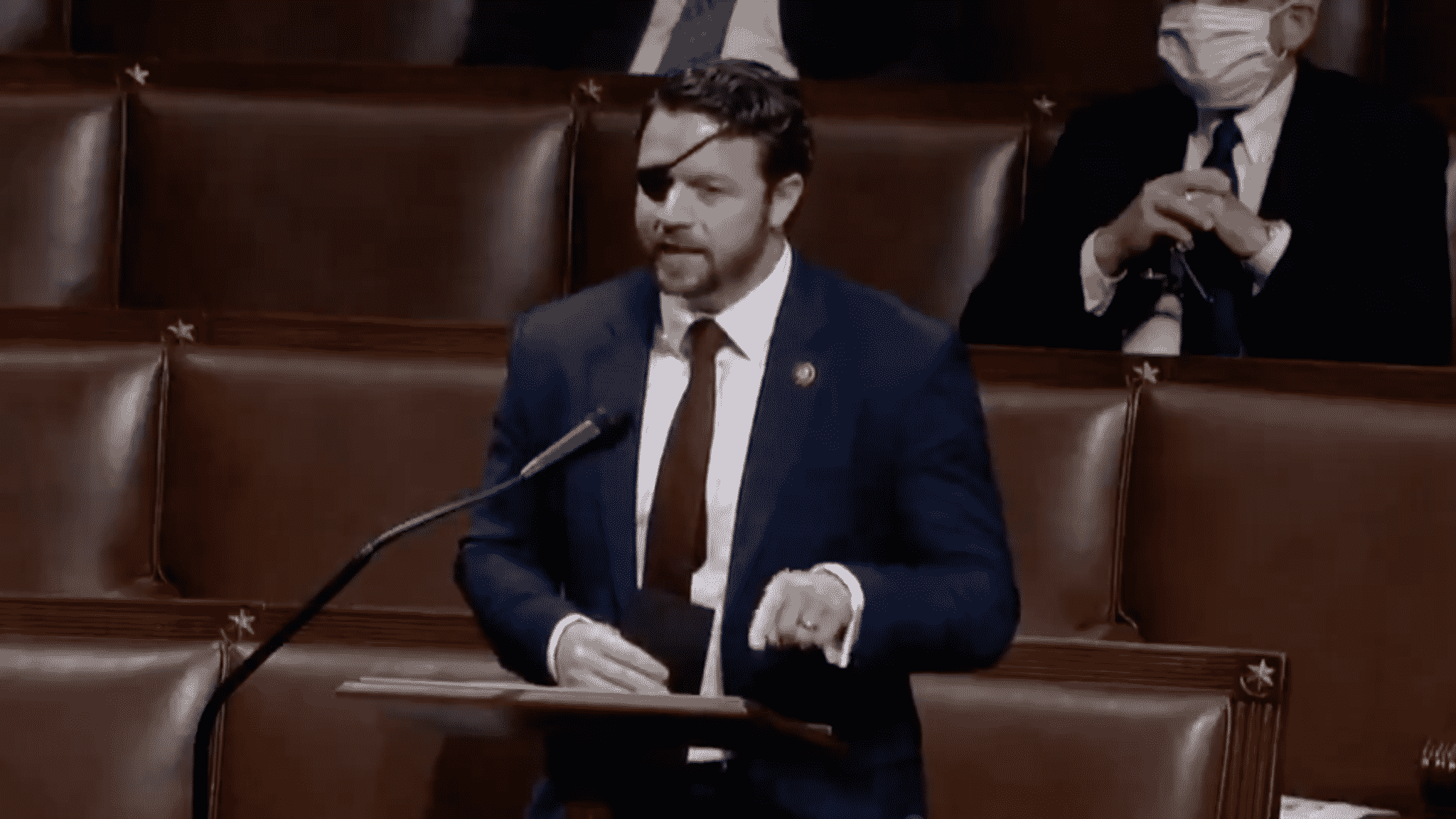Lawmakers returned to Washington, D.C. on Thursday to vote on the $500 billion coronavirus relief bill.
On Thursday, House members debated the latest coronavirus relief bill designed to replenish the Paycheck Protection Program (PPP) — which ran out of funds late last week. Rep. Dan Crenshaw (R-Texas) blasted his colleagues for not returning to Washington, D.C. sooner to vote on the bill.
“I rise today where we should have been a week ago when the Treasury warned us that the small business program needed re-funding,” Crenshaw said.
He continued, “It’s a program that Americans need desperately to keep their payrolls whole during this crisis. But, in predictable fashion, it was delayed.”
Crenshaw went on to slam Democratic lawmakers for holding up the bill to fight for more funding for hospitals and coronavirus testing. He suggested that the bill could have been past last week, “But they know that this vote today could have easily been agreed to last week.”
He continued:
“We are asking our grocers to stock our shelves. Truckers to drive. And nurses and doctors to risk their lives. But Congress can’t even bother to vote to help small businesses in time. If fact many want to vote from home or by proxy. If you think that’s leadership, then I would encourage you to rethink what it means to be a representative. Leadership is courage to lead from the front.”
Watch the video below:
Rep. @DanCrenshawTX: "Many want to vote from home or by proxy. If you think that's leadership, then I would encourage you to rethink what it means to be a representative. Leadership is courage to lead from the front." pic.twitter.com/TxbpU29a68
— The Hill (@thehill) April 23, 2020
Most lawmakers left Washington, D.C. last month to return to their districts due to concerns about the coronavirus outbreak.
The Senate passed the bill by unanimous consent on Tuesday, meaning that the whole Senate did not have to return for a recorded vote. However, House members were required to return to the Capitol after failing to approve a measure to pass the latest bill by unanimous consent.
The $500 billion bill was held up as Congressional leaders negotiated the scope of it. Republicans were pushing for a bill that would simply infuse the small business program with cash, while Democrats fought to include funding for hospitals and to ensure a portion of the small business funds were set aside for minority-owned businesses.















 Continue with Google
Continue with Google